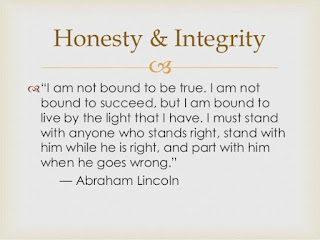Failing with Honor: A Forgotten Measure of Leadership
A recent roundtable
with line managers and the CEO of a prominent company inspired this reflection.
After one manager's straightforward report, the CEO interjected: “I know you’ve
tried your best, but your best didn’t yield any fruit.” The pointed phrasing
and animated delivery suggested derision, implying not just poor results but a
lack of results at any ethical cost.
Leaders navigate highs
and lows, yet we often judge them solely by achievements. The true test lies in
handling failure with integrity, especially when moral principles like honesty
and honor feel outdated amid profit-driven pressures. Ethical leadership
demands expanding "value" beyond finances to include virtues like
humility and dignity, even when success falters.
The following are historical examples of failing with honor:
Socrates (469–399 BCE):
Accused of corrupting youth and impiety, he chose hemlock over fleeing,
upholding reason and virtue—immortalizing his commitment to truth.
Dag Hammarskjöld
(1905–1961): As UN Secretary-General during the Congo Crisis, he maintained
neutrality against Cold War forces, dying in a plane crash while prioritizing
peace over politics.
Lech Wałęsa (b. 1943):
Facing imprisonment and Solidarity's early defeats, he persisted nonviolently,
sowing seeds for Poland's communist downfall through steadfast integrity.
These figures show
failure infused with dignity outshines transactional wins, making leadership
aspirational. In chasing results, we should admire those who stand firm in
virtue amid loss—teaching enduring lessons over deceitful success.




Comments